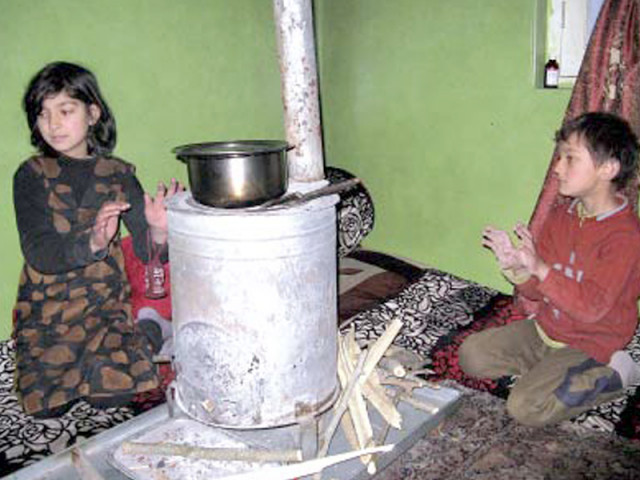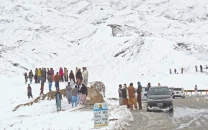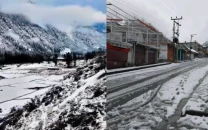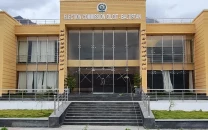Weathering the cold: Revolutionising ‘warmth’ in G-B
Introducing the Bukhari: you don’t feel at home without one.

Necessity is the mother of invention. A traditional heating system is now being widely used across Gilgit-Baltistan (G-B), created from the need to counter the region’s otherwise bitter cold.
In the absence of facilities such as electricity and gas, the device is the most economical option cherished by many for heating homes, offices and schools. One of its greatest advantages is that you can cook food and at the same time your family can cluster around it and warm themselves. “It’s economical because you can use it for heating, cooking and warming water,” said Shaukat Ali, a senior citizen residing in Gilgit.
Available in varying sizes and shapes, the Bukhari system is often fixed in a common room to extract maximum benefit from the locally-made device. Its exhaust pipe goes through the roof or a window.
The heating system is largely considered as the most, if not the only, viable option to survive winters in which temperatures plummet below minus 10 to 25 degrees Centigrade, especially in December and January in the mountainous region.
“This is undoubtedly the only way to withstand the biting cold in winters,” commented Raza Ali, a resident of Skardu, the main town of Baltistan where temperatures dropped to -16 degrees Centigrade in December. Ali went as far as to say using modern equipment like kerosene or gas heaters for comfort would be a mistake.
Firewood is fairly easily available in the market, though the G-B forests department has placed a ban on the supply of wood from Diamer to the rest of the region in an effort to control deforestation in the valley. Most of the people who posses land grow trees to use them as firewood in winters.
Published in The Express Tribune, February 3rd, 2012.


















COMMENTS
Comments are moderated and generally will be posted if they are on-topic and not abusive.
For more information, please see our Comments FAQ